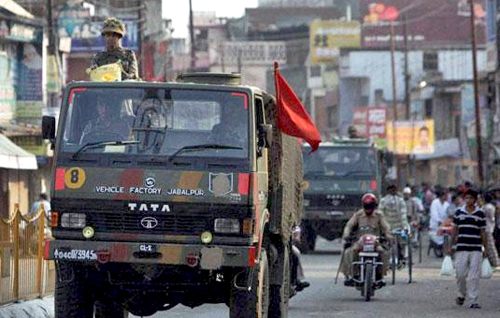 New Delhi, Dec 17: Massive protests took place outside the Parliament in New Delhi against the Communal Violence Bill. BJP, too has reiterated the protests against the bill early morning today.
New Delhi, Dec 17: Massive protests took place outside the Parliament in New Delhi against the Communal Violence Bill. BJP, too has reiterated the protests against the bill early morning today.
The Communal Violence Bill is likely to be tabled by the Parliament today, as announced by the Union Home Minister Sushil Kumar Shinde. As per sources, the Cabinet cleared the Bill on Monday. Several changes have been made in the Bill, which include the Centre being duty-bound to send forces to the hot areas only on the request of the local administration.
The changes, however, were made after the opposition raised objections. The reformed Bill would be neutral, as compared to the previous Bill which laid the onus on the majority community. Also, officers will be held responsible if the riots cannot be controlled, and not the state officials.
BJP, however, was opposed to the Communal Violence Bill. However, this has great support from the ruling coalition, especially after the Muzaffarnagar violence.
CPI leader D Raja, relates the Left's reservations over the Bill. "This Bill has some issues, it is said that this Bill overrules the state powers. Then in case of victims also, there is some issue. I do not think this Bill can be brought in the House," he said.





Comments
Add new comment